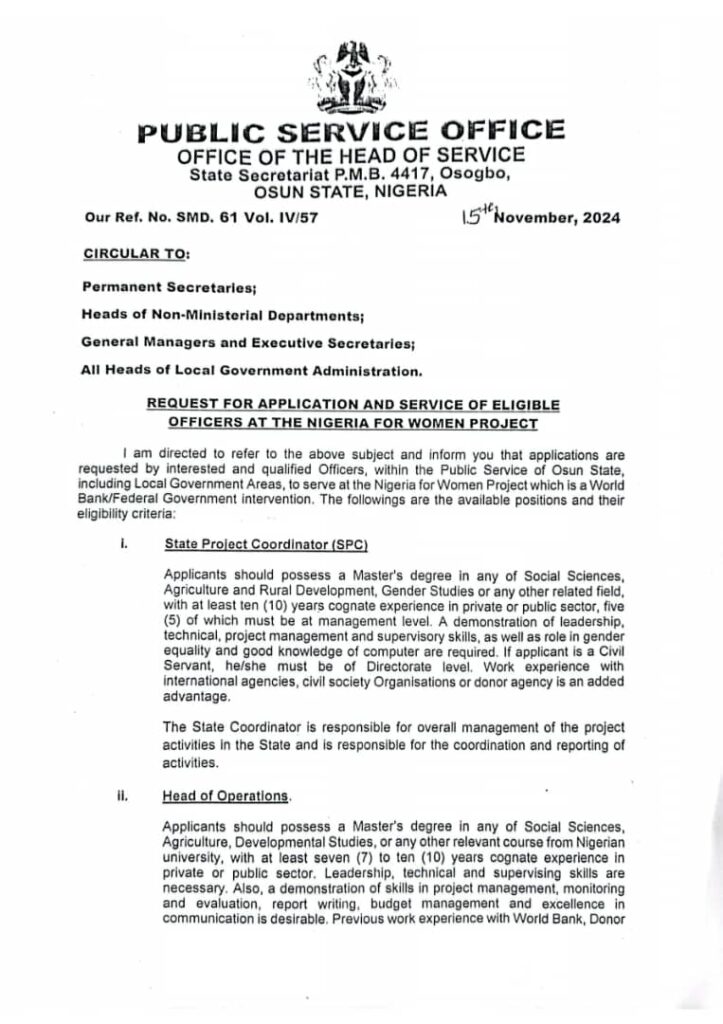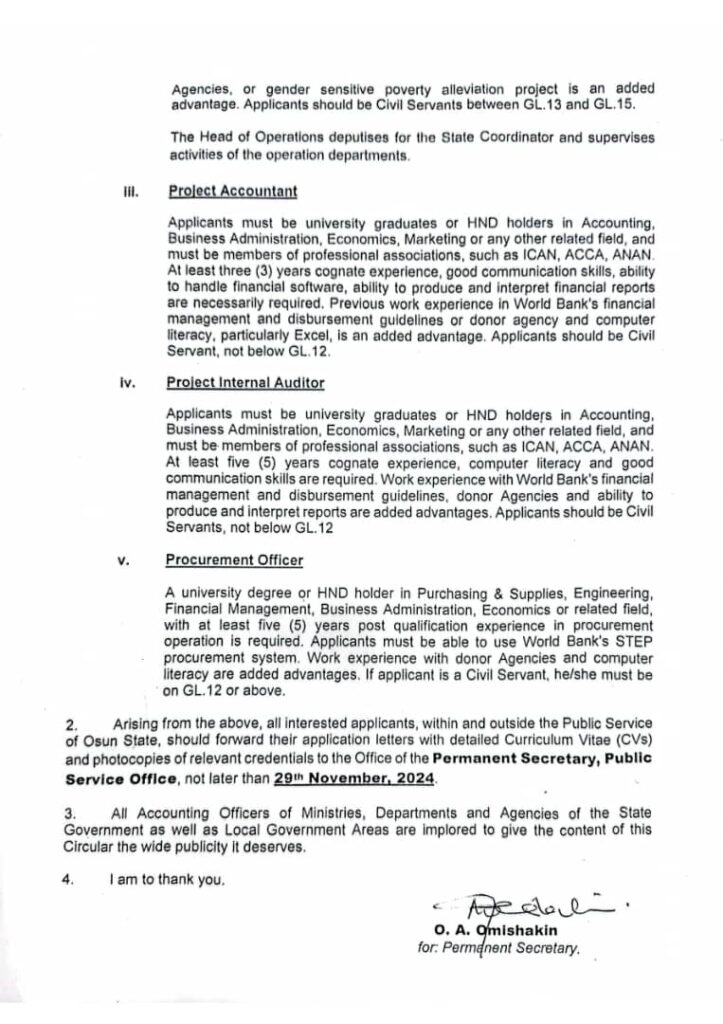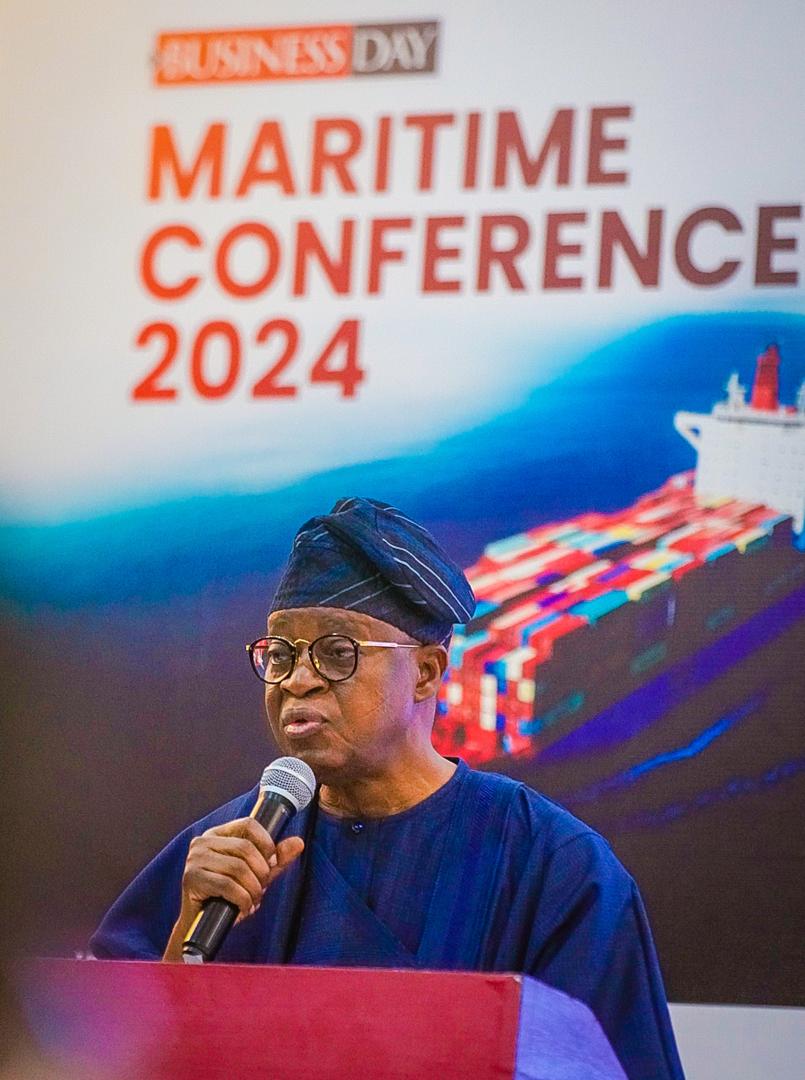By Adebayo Adedeji
The allegation that the Osun State Government earlier in the year secretly signed a $16 million foreign loan facility, an equivalent of N26.6 billion, to fund “Nigeria for Women Project” has raised serious concerns.
The loan facility, reportedly signed by the state Commissioner for Finance and witnessed by state Accountant General, is set to be disbursed early next year.
This development comes on the heels of a state government Circular calling for applications from eligible officers to champion the project. The Circular, from the Public Service Office, Office of the Head of Service and issued on 15th November, 2024, by O.A Omisakin, on behalf of the Permanent Secretary, reads thus, ” I am directed to refer to the above subject and inform you that applications are requested by interested and qualified Officers, within the Public Service of Osun State, including the Local Government Areas, to serve at the ‘Nigeria for Women Project’ which is a World Bank/Federal Government Intervention…”

The description that the project is a “World Bank/Federal Government Intervention” leaves many to wonder if this is a loan or a grant.
The lack of transparency sorrouding the project coupled with the government’s earlier failure to disclose details of its 2025 budget estimate, submitted to the state house of assembly last week, has fueled speculation that the loan may be diverted for the 2026 governorship election. Furthermore, the government’s decision to “set aside” N145 billion of the recurrent expenditure in the budget forecast, without providing detailed information, has raised eyebrows.
The Osun State Government must come clean about the facility, and its intentions, to maintain the trust of Osun citizens.

The people deserve to know if the “World Bank/Federal Government Intervention” is a loan or a grant, and how the funds will be utilized. Transparency and accountability are essential in governance.
The “Nigeria for Women Project” is a $500 million 5-year World Bank credit fund created to help support improved livelihoods for women.






